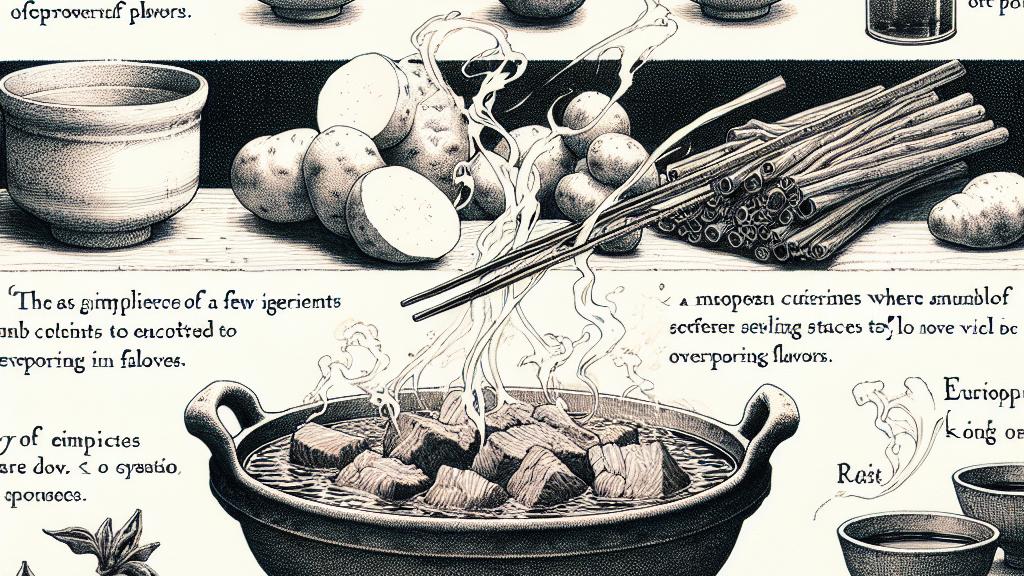Exploring the Elegance of Japanese Cooking
Overview
- Japanese cuisine meticulously eliminates undesirable flavors for harmony.
- It balances vivid colors, diverse textures, and umami-rich flavors.
- Deep cultural appreciation for presentation elevates the dining experience.

The Art of Flavor Refinement
In Japan, cooking transcends mere sustenance; it's an expressive art form focused on the careful removal of harsh, unwanted flavors—often termed 'noise' in culinary terms. A prime example is 'nikujaga,' a comforting dish of tender beef and potatoes. Chefs often start by boiling the beef, discarding the water to eliminate overpowering tastes. This simple yet profound step ensures that each bite reveals the gentle sweetness of the potatoes paired perfectly with the rich umami of the beef. By contrast, many European cuisines thrive on complexity, with an array of spices competing for dominance. In Japan, however, simplicity reigns supreme, allowing each ingredient to reveal its unique character with clarity and grace.
Visual and Sensory Delight
Japanese cuisine is a captivating symphony for the senses, engaging not just the taste buds, but sight, sound, and even touch. Picture the meticulous arrangement of a meal, where colors mimic nature's beauty—imagine cherry blossoms in spring or cascading waterfalls in summer. At a recent seminar in New York, Chef Koichiro Hata passionately emphasized how textures elevate the dining experience, suggesting that sushi should be enjoyed by hand to create a personal connection with each piece. Can you feel the excitement as you lift that perfectly crafted sushi, its coolness awakening your fingers before the explosion of flavors dances on your palate? Additionally, every sound—from the sizzling of fish cooking to the gentle pouring of aromatic sake—adds depth to the sensory experience, enhancing the joy of eating.
Cultural Values Embedded in Cuisine
Moreover, the cultural significance of Japanese cooking is profound, embodying deep respect for nature and the ingredients nurtured from it. The principles of washoku emphasize achieving balance—not just in flavors but also in health and harmony. Imagine a traditional Japanese breakfast featuring steaming rice, a comforting bowl of miso soup, perfectly grilled fish, and an array of colorful pickled vegetables; each dish reflects gratitude for seasonal ingredients and a connection to the earth's bounty. Unlike many Western traditions, where flavors may clash, Japanese meals strive for harmony, allowing all elements to blend seamlessly. This delicate balance creates a soothing experience that resonates with Japan's aesthetic values and philosophical approach to life, leaving diners with a fulfilling sense of peace and contentment after every meal.

Loading...